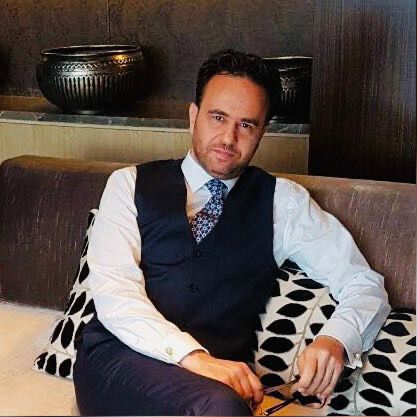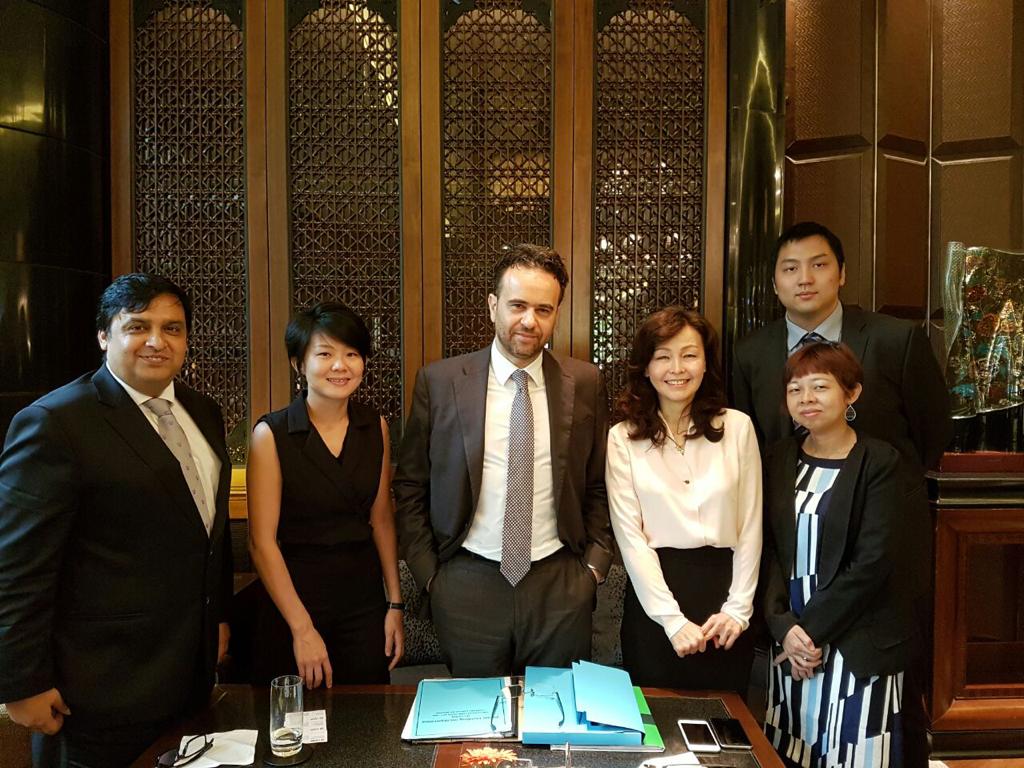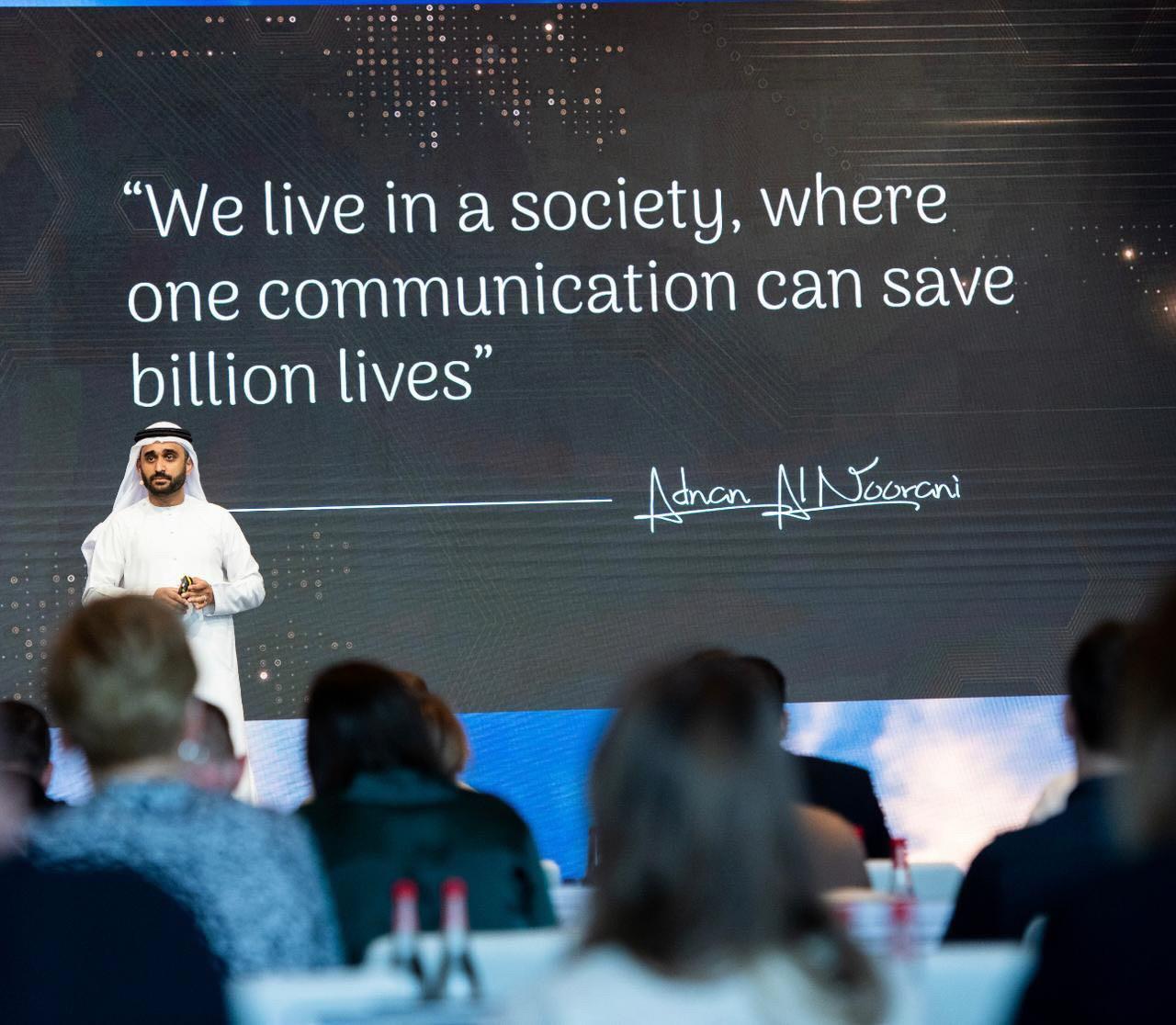In this exclusive interview we talk to Karim Bouhout who is the Chairman of global and dynamic investment firm, Prime Group.
Prime Group is a dynamic and forward-thinking investment company specializing in identifying and capitalizing on promising investment opportunities across various industries. Prime Group has a team of experienced professionals who carefully evaluate market trends, analyze financial data, and conduct thorough due diligence to make informed investment decisions.
At Prime Group, the belief lies within creating long-term value and fostering growth. Karim Bouhout actively seeks out to other innovative companies and startups with strong potential for success. By providing strategic capital and expertise, Prime Group supports these ventures in achieving their goals and realizing their full potential.
Prime Group’s diverse portfolio encompasses a wide range of industries, including technology, healthcare, real estate, and renewable energy. Prime Group aims to not only generate attractive returns for investors but also contribute to the growth and development of the businesses that group invests in.
With a commitment to excellence and a focus on building strong partnerships, Prime Group strives to be a trusted and reliable investment firm by continuously monitoring market dynamics, adapting to changing trends, and seizing opportunities to deliver value to group’s stakeholders.
Prime Group is an investment company that combines expertise, strategic thinking, and capital to identify and support promising ventures across various industries.
Stankevicius: In the past year, what is the greatest business achievement you have achieved?
Karim Bouhout: Closing a 250 million euro investment fund. Prime Group successfully secured a significant amount of funding, amounting to 250 million euros, for their business ventures or investments. This achievement demonstrates their ability to attract substantial financial resources.

Establishing the Instituto Prime Group. Prime Group created a humanitarian NGO called Instituto Prime Group, which operates in various African countries. This initiative shows their commitment to making a positive impact on communities in need and contributing to social development in Africa.
These achievements highlight Prime Group’s financial success and their dedication to corporate social responsibility through the establishment of their humanitarian NGO.
Stankevicius: What advice do you wish you had received when you started your business journey and what do you intend on improving next year in 2024?
Karim Bouhout: One piece of advice often shared is to focus on solving a real problem or meeting a genuine need with your business idea. Additionally, it’s crucial to build a strong network of mentors and peers who can offer guidance and support along the way.
As for improvements in 2024, enhancing marketing strategies to reach a wider audience, investing in employee training and development, and continuously adapting to market trends and technological advancements. It’s important to assess your business’s unique needs and prioritize improvements accordingly.
Stankevicius: Business is all about overcoming obstacles and creating opportunities for growth. What do you see as THE real challenge right now?
Karim Bouhout: One of the significant challenges many businesses face is adapting to the rapidly changing landscape caused by the COVID-19 pandemic, Ukraine Crisis and actual Israel -Palestine events. The pandemic has disrupted industries, supply chains, and consumer behavior, forcing businesses to pivot their strategies and operations to survive and thrive. It has underscored the importance of agility, resilience, and digital transformation.
Stankevicius: What does “success” in the year to come mean to you?It could be on a personal or business level, please share your vision.
Karim Bouhout: On my personal level, it might entail achieving a healthy work-life balance, personal growth, or accomplishing specific milestones or ambitions. It could also involve maintaining strong relationships, prioritizing well-being, or making a positive impact in one’s community.
On my business level success involve meeting financial targets, expanding market share, launching innovative products and services, establishing a strong brand reputation. It might also encompass fostering a positive work culture, attracting and retaining top talent .
Stankevicius: In your experience, what tends to be the most underestimated part of running a company? Can you share an example?
Karim Bouhout: One aspect that is often underestimated in running a company is the importance of effective communication. Clear and open communication is vital for a company’s success, yet it can be overlooked or undervalued.
For example, a company may introduce a new strategic initiative without effectively communicating the rationale, goals, and expectations to its employees. This lack of communication can result in confusion, resistance, or misalignment among team members, ultimately hindering the implementation and success of the initiative.
Similarly, insufficient communication with customers can lead to misunderstandings, dissatisfaction, or missed opportunities. Neglecting to clearly convey product updates, changes in policies, or addressing customer concerns in a timely manner can negatively impact customer relationships and loyalty.
By recognizing the significance of communication and investing in transparent and frequent interactions with employees, customers, and stakeholders, companies can foster better collaboration, engagement, and overall success.
Stankevicius: Can you share a time when your business faced a significant challenge? How did you navigate through it?
Karim Bouhout: Our company faced difficulties during the pandemic, such as supply chain disruptions, reduced customer demand, and the need to adapt to remote work. To navigate through these challenges, we implemented this strategies :
Transitioning to remote work: We adopted remote work policies and utilized technology to enable employees to work from home, ensuring business continuity.
Implementing safety measures: we introduced safety protocols, such as social distancing, mask requirements, and increased sanitization, to protect employees and customers.
Pivoting to online platforms: we expand our online presence, launching e-commerce platforms, virtual services, and online delivery options to reach customers who were unable or hesitant to visit physical locations.
Diversifying revenue streams: We explored new avenues for revenue generation by diversifying our products offerings and exploring partnerships with complementary industries.
Seeking financial support: we accessed government assistance programs, loans, to alleviate financial strains caused by the pandemic.
Communicating with customers: Transparent and frequent communication with customers about changes in operations, safety measures, and support options helped build trust and maintain relationships.
Stankevicius: How has a failure or apparent failure set you up for later success?
Karim Bouhout: Failures serve as learning opportunities by highlighting areas for improvement, revealing potential pitfalls, By analyzing what went wrong and why, we gain valuable knowledge and make adjustments to increase the chances of success in future endeavors.
Our failures provide us valuable feedback from which our organizations learn, iterate, and refine our approaches. By embracing failure as a part of the learning process ,we become more open to taking risks, exploring new ideas, and ultimately achieving greater success.
Stankevicius: How do you build a resilient team?What qualities do you look for in your team members?
Karim Bouhout: We built resilient team with this keys considerations.
- Adaptability: Seek individuals who are flexible and can readily adjust to changing circumstances.
- Collaboration: Look for team players who can effectively work together, communicate openly, and support one another.
- Problem-solving skills: Prioritize individuals who can think critically, analyze challenges, and propose creative solutions.
- Emotional intelligence: Choose team members with strong interpersonal skills, empathy, and the ability to manage emotions effectively.
- Positive mindset: Seek individuals who maintain a positive outlook, even in the face of setbacks, and inspire others to do the same.
- Self-motivation: Look for team members who are driven, proactive, and take ownership of their work. Resilience: Prioritize individuals who demonstrate resilience in the face of adversity, bounce back from setbacks, and maintain a sense of determination. Continuous learners: Choose team members who are open to learning, embrace new ideas, and actively seek personal and professional growth.
Our philosophy is that diversity of skills, perspectives, and backgrounds can also contribute to a more resilient team.
Stankevicius: How do you maintain your personal resilience during tough times?
Karim Bouhout: I am mainting personal resilience seeking support from my friends and family, practicing self-care through activities like exercise and relaxation, setting realistic goals, maintaining a positive mindset, and learning from past experiences.
Stankevicius: What strategies do you use to manage stress and maintain focus during a crisis?
Karim Bouhout:
- I Practice deep breathing and mindfulness techniques to calm my mind and reduce stress.
- I Break tasks into smaller, manageable steps to avoid feeling overwhelmed.
- I Prioritize my tasks and focus on what’s most important first.
- I Take regular breaks to rest and recharge, allowing myself time for relaxation or engaging in activities to enjoy.
- I Maintain a healthy lifestyle by getting enough sleep, eating balanced meals, and exercising regularly.
- I seek support from friends, family, or a support network to share my feelings and concerns.
- I set realistic expectations acknowledging that i am doing my best in challenging circumstances.
- I practice meditation and i spend time in nature
Stankevicius: How do you communicate with your team during a crisis?
Karim Bouhout: I provide clear instructions. Clearly communicate expectations, roles, and responsibilities during the crisis. I ensure that everyone understands their tasks and knows how to proceed.
Stankevicius: What’s the most important lesson you’ve learned about leadership in times of crisis?
Karim Bouhout: I learn that one of the most important lessons is the value of clear and effective communication. During a crisis, leaders should provide timely and transparent information, address concerns, and offer guidance to help people navigate the situation. Additionally, displaying empathy, remaining calm under pressure, and making informed decisions based on available information are essential qualities for effective leadership during a crisis.










